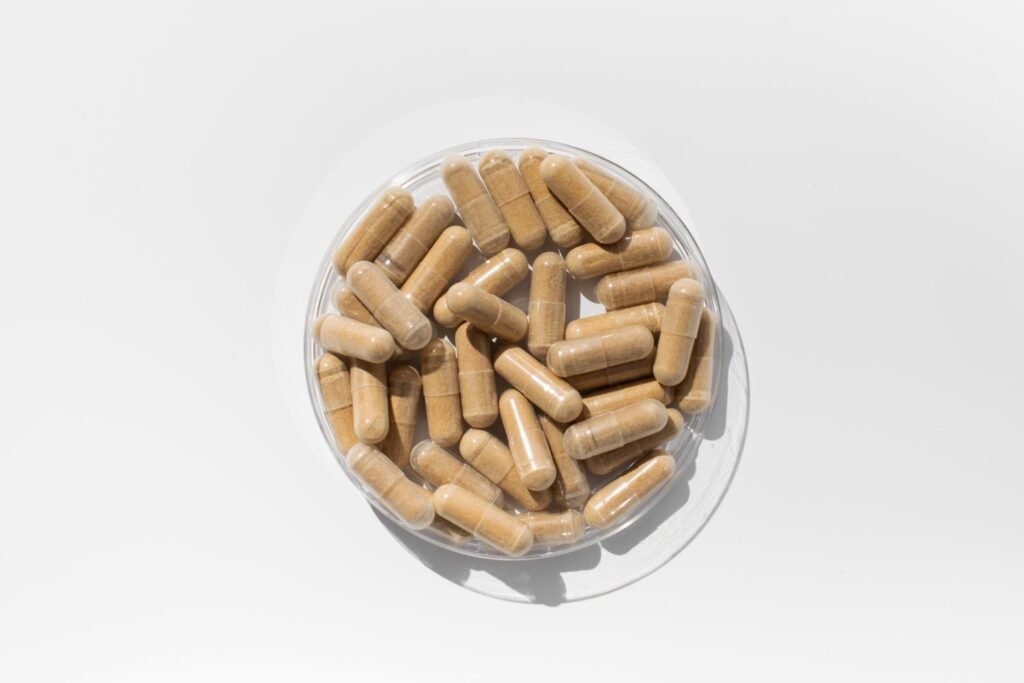Understanding Taurine: Benefits, Research, and Safety
Taurine is a naturally occurring amino acid found in various protein-rich foods and is synthesized by the body itself. It has gained attention for its potential health benefits, including antioxidant properties and possible anti-aging effects. Let’s delve into how taurine works, what the latest research says about its benefits, and its safety profile.
How Does Taurine Function in the Body?
Supporters of taurine claim that it offers several advantages, including:
- Promoting Relaxation & Sleep: Taurine may aid in improving sleep quality and mental relaxation.
- Enhancing Brain Function: It may support cognitive processes and overall brain health.
- Boosting Athletic Performance: Many athletes use taurine to enhance their exercise capacity and muscle strength.
- Supporting Cardiovascular Health: Research suggests taurine can help regulate blood pressure, improve blood vessel function, and boost cardiac fitness.
Anastasiya Shor, PharmD, highlights that taurine’s antioxidant properties may play a role in promoting heart health.
New Research Challenges Taurine’s Anti-Aging Claims
While some studies suggest that taurine can delay aging and improve health, the research is not robust. Current evidence primarily comes from animal studies and small-scale human trials, making it difficult to draw definitive conclusions.
Key Research Findings:
-
Muscle Strength and Exercise Capacity: Current human trials indicate taurine supplementation can enhance muscle strength and exercise performance.
-
Significant Decline with Age: Research conducted by Vijay K. Yadav, PhD, indicates that taurine levels decline markedly from birth to 30 years of age. Levels are stable from 30 to 60 but show a slight increase from 60 to 90. Nonetheless, taurine levels are still about 60% lower in old age compared to early life.
- Conflicting Evidence: A recent NIH-funded study found that taurine levels do not consistently decrease with aging, challenging the notion that low taurine levels are a reliable marker of aging.
Comparison of Studies:
-
Yadav’s Study (2023): Focused on the decline of taurine levels from birth to age 60 and established a correlation between taurine supplementation and improved lifespan in younger animals.
- NIH Study: Analyzed circulating taurine levels from ages 30 to 90, suggesting a different pattern of taurine concentration over time.
This discrepancy emphasizes the necessity for further research to clarify taurine’s role in aging.
Is Taurine Safe for Consumption?
The Food and Drug Administration (FDA) recognizes taurine as safe when consumed in small amounts. Typical amounts in energy drinks range between 750 mg and 1 gram per can, comparable to approximately 100 grams of dried seaweed.
Key Safety Points:
-
Natural Sources: Taurine is found in meat, eggs, seafood, and human breast milk. A typical Western diet generally provides sufficient taurine.
-
Daily Consumption: Daily intake of up to 3 grams is deemed safe, although higher doses exceeding 6 grams have limited long-term research.
- Consultation Recommended: Those consuming significant amounts from energy drinks should consult healthcare providers, especially since taurine is often combined with other ingredients.
Who Should Consider Taurine Supplements?
While taurine levels may be lower in vegetarians and vegans, whether supplementation is necessary remains uncertain. Experts recommend conducting more research before drawing firm conclusions.
Conclusion:
While early evidence suggests that taurine might aid in health maintenance and possibly slow aging, experts advise caution with supplementation until further studies reinforce its efficacy. It’s crucial to stay updated with ongoing research to make informed dietary choices regarding taurine.
Further Reading
For more in-depth information on taurine:
Taurine presents fascinating possibilities for health benefits, but the current consensus among scientists is to proceed with caution until more definitive studies become available.


